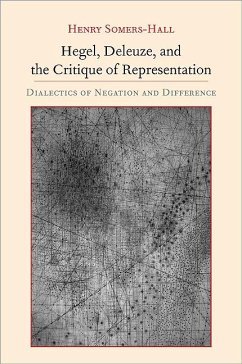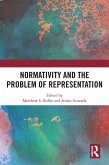Hegel, Deleuze, and the Critique of Representation provides a critical account of the key connections between twentieth-century French philosopher Gilles Deleuze and nineteenth-century German idealist G. W. F. Hegel. While Hegel has been recognized as one of the key targets of Deleuze's philosophical writing, Henry Somers-Hall shows how Deleuze's antipathy to Hegel has its roots in a problem the two thinkers both try to address: getting beyond a philosophy of judgment and the restrictions of Kant's transcendental idealism. By tracing the development of their attempts to address this problem, Somers-Hall offers an interpretation of the sweep of nineteenth- and twentieth-century philosophy, providing a series of analyses of key moments in the history of thought, including the logics of Aristotle and Russell, Kant's own philosophy of judgment, and the philosophy of Bergson. He also develops a novel interpretation of Deleuze's philosophy of difference, and situates his philosophy in relation to the broader post-Kantian tradition. In addition to Deleuze's relation to Hegel, the book makes important contributions to the study of Deleuze's philosophy of mathematics, as well as to the study of several underappreciated areas of Hegel's own philosophy.
Dieser Download kann aus rechtlichen Gründen nur mit Rechnungsadresse in A, D ausgeliefert werden.









